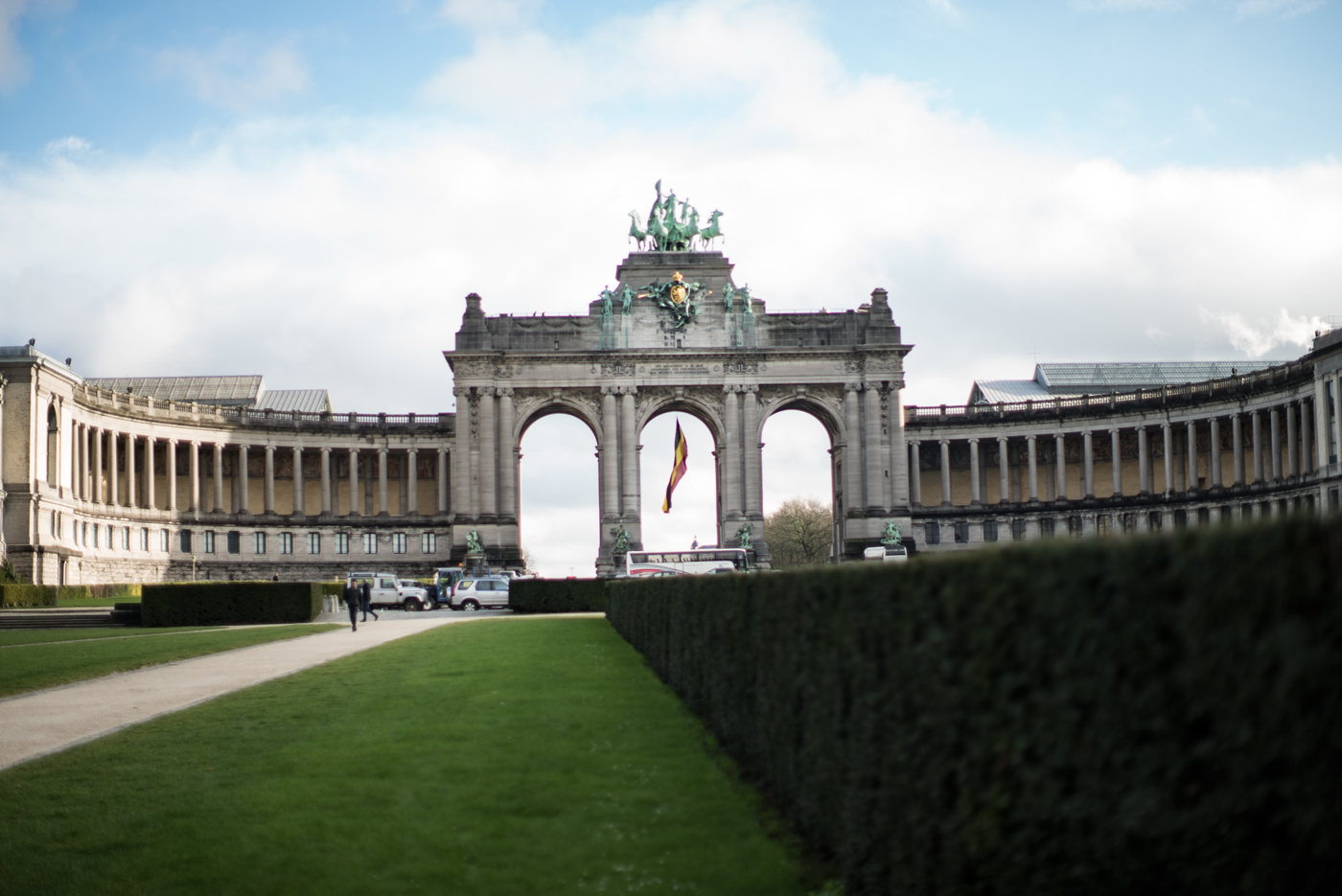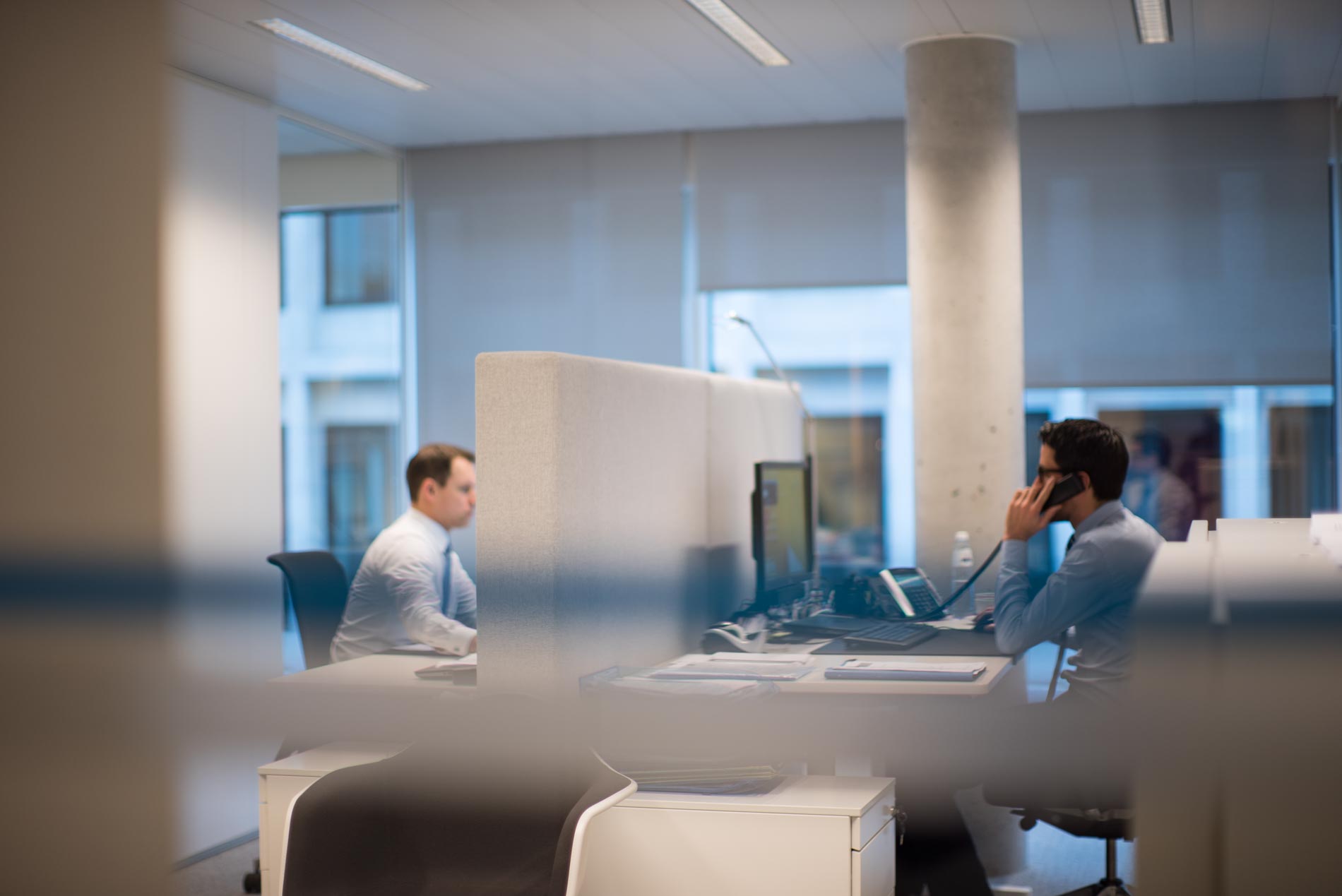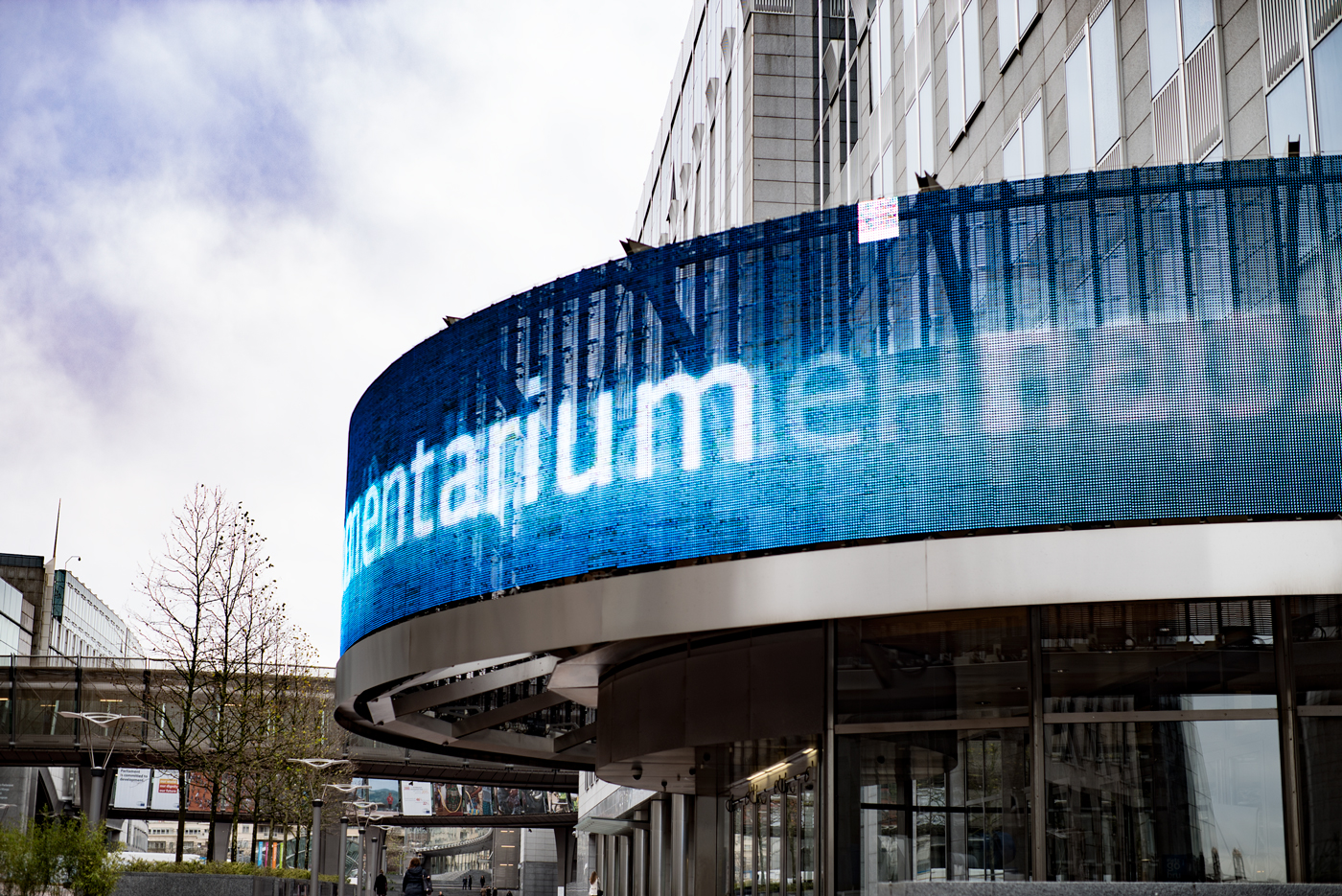European integration is no “project” for the BDI – it’s an urgent necessity if we are to be a global region standing alongside the United States and China. Germany, home to only 1 per cent of the global population, can do little alone in a world growing increasingly close-knit. Only as an integral part of a European single market with 450 million consumers does Germany have a strong voice in global politics.
The European Union provides the largest single market in the world, laying the foundations for a prosperous economy. On this basis, the division of labour within Europe has developed in a fashion totally unlike anywhere else. The European single market is the heart of prosperity in Europe. In the last two decades alone the value of all goods traded in the EU has tripled.
Today, the home market of German industry is Europe. Germany’s successes on the world markets are based on a strong production network stretching beyond national borders and industries. Regulations applying to German industry are mainly set at the European level. 60 per cent of new legislation in Germany have their origin in Brussels: the crucial political decisions are taken at the EU level, involving Germany as one of 27 Member States in the Council.
The BDI in Brussels
The BDI began its representative work in Brussels in 1958. Much has happened since then. The community has grown, both geographically and economically – in an unprecedented fashion. To foster this development even further the BDI is renewing its presence in Brussels: since February 2016 it has a new office in the Belgian capital. 20 BDI personnel are stationed in the Rue Marie de Bourgogne, strategically close to the EU’s main decision-makers – the European Parliament, the Council and the European Commission are only a few minutes away. To accomplish even more together, the newly created “House of German Business – Industries and Employers” gathers around 40 notable trade associations and enterprises under a single roof. The goal is to pool interests and strengthen networking – for example, at the more than 50 BDI events organised every year.
Nonetheless, doubts are growing about European cooperation. We are reminded that free trade and internationalisation are not an inevitable development. The danger of nationalism and isolation has not been averted.
The first and most important task of the BDI was and is to promote free trade and European integration. Our work in Brussels is justified by the conviction that these are the basis of a prosperous life.
This is not always an easy task. It is beyond dispute that prosperity results from production and trade, and that politics, if it wants to improve people’s lives, must foster conditions for economic exchange. However, politics sometimes loses focus on the creation of these underlying economic conditions. Its “business model” is that of problem solving. Yet politics can scarcely win points with voters for the implementation of a functioning market – its utility only emerges in the long-term. The BDI makes persuasive arguments here to ensure that the long-term perspective isn’t ignored, either by politicians or by voters.
How do we do it? Amongst other things, in dialogue with the EU institutions, where the better argument is given precedence, and in close consultation with our partners, pooling our forces.
As early as 1958, the year in which the Treaty of Rome entered into force, establishing the European Economic Community, the BDI opened an office in Brussels as one of the first trade associations. Today, along with its members, companies and European partners, the BDI is involved in EU legislation in the areas of energy, climate, digitalisation, trade, environment, innovation, transport, economy, finance, competition, taxes, security, raw materials and corporate law, amongst others. The BDI and the Confederation of German Employers‘ Associations (BDA) maintain together in Brussels a common office: BDI/BDA The German Business Representation.
Only together with its European partners can the BDI guarantee political majorities for growth-friendly EU politics. Within a Union of 27 Member States in the Council and with around 700 Members in the European Parliament, this is a daily challenge. Collaboration with other national industrial associations and the European industrial umbrella organisation BusinessEurope is hence very important. “The BusinessEurope family, to which the BDI is a very strong and active member, exists for the same reason that the European Union exists: together, we are stronger,” says Markus J. Beyrer, the Director General of BusinessEurope. “Nowadays, each and every one alone is too weak at EU – let alone at global – level, therefore, we act together in the interest of European companies to create growth and jobs for a stronger European Union.”
What does this collaboration with BusinessEurope look like? “We get together to find common positions on a wide array of topics that matter to European companies,” according to Beyrer. “The EU has created a rulebook of now almost 100,000 pages. Many of these rules have to be applied by companies of all sizes. Our experts evaluate proposals and suggest improvements or compromises.” The process of finding common positions isn’t always easy. “Obviously, as in any family, we sometimes have long, intense and interesting discussions. But once a decision or position has been taken, we all stick to it.” This is very important since “the market of interest representation in Brussels is a crowded place. If we want to remain the number one voice of business at EU level, we need to agree on strong, meaningful and smart positions.”
Increasing its presence in the Belgian capital is part of the BDI’s international strategy. Not only the site in Brussels, but also the representative office shared with the DIHK in Washington is being expanded – and an office was set up in Beijing. Establishing and expanding international networks, creating and fostering partnerships and participating in international structures and forums is the BDI’s answer to the rise of globalisation. Without strong international representation the voice of the most important industrial sector in Europe would be missing. This would certainly increase the risk that the de-industrialisation process in Europe, which contributed to the continent’s vulnerability in past years, would pick up pace once again. In the past, many policies and regulations passed by European institutions were to the detriment of industry. This has to be rebalanced.
Energy, climate and environmental politics ought to be connected to an EU-wide consolidation of the industrial base. The adopted strategy of integration and structural renewal within Europe must be continued.
Strengthen Europe's voice in the world: Europe must speak with one voice internationally and present a united front to partners and competitors alike. An important step would be to replace the principle of unanimity in the Common Foreign and Security Policy (CFSP) with majority decisions. This would significantly strengthen the EU's ability to act in the field of foreign policy.
Involve European partners more strongly in foreign policy: Especially in relations with world powers, such as China or the United States, national governments should place greater emphasis on the European dimension. For example, it would make sense to include representatives of EU institutions, other European governments or corresponding associations and companies in state visits, government consultations or delegation trips. This would ensure that the EU is perceived as a unity.
Use Europe's influence in a targeted way: Europe's greatest asset on the world political stage is its "soft power". This is the result of Europe's large Single Market and the competitiveness of its companies, above all its SMEs. This strength must be built on because only an economically strong Europe is a politically strong Europe that guarantees prosperity and social cohesion and that can defend its interests, standards and values in the world.
Provide holistic and global answers when implementing the Green Deal: Europe must rely on a competitive and sustainable industry to implement its ambitious climate targets. In addition, it needs a resilient regulatory framework and consistent mix of instruments at EU level and, above all, an active European climate diplomacy, because climate change is a global challenge that Europe cannot tackle alone.
Develop a self-confident foreign trade policy: Europe must assert its interests and values in foreign economic policy. We need a trade policy that puts Europe's economic and political interests at the centre, contributes to international competition on an equal footing and protects our companies from coercive measures by other states. In addition to economic sustainability, foreign trade policy must also take into account social and environmental sustainability and the enforcement of human rights. However, this must not overburden trade and investment agreements.
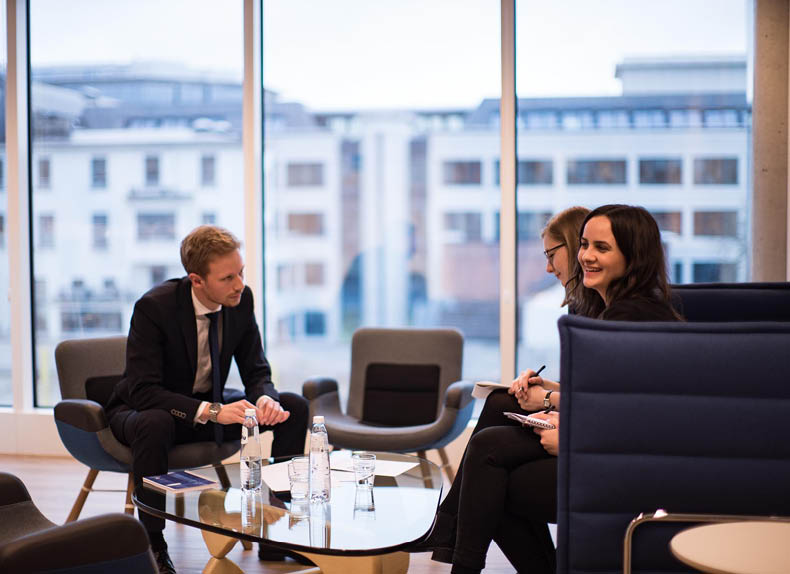
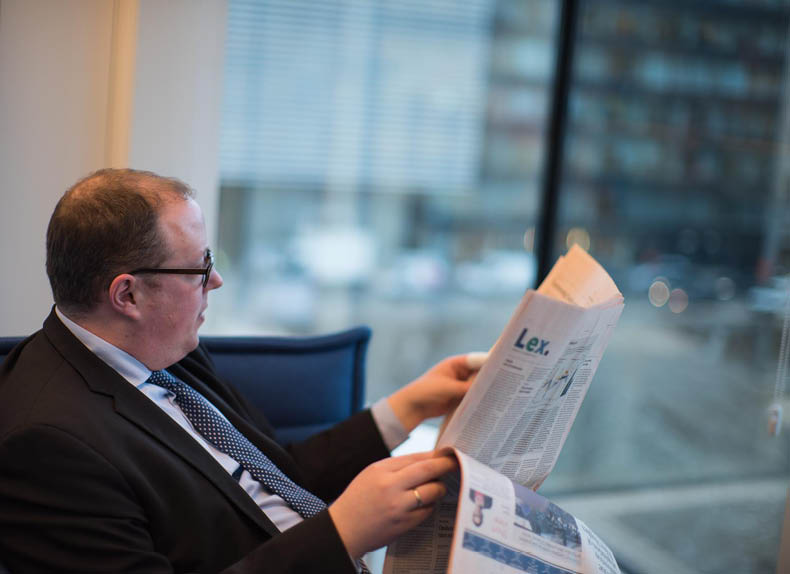
Orient all policy fields towards competitiveness: The EU institutions should focus all policy areas on competitiveness ("industrial mainstreaming") in order to introduce the perspective of industrial competitiveness at an early stage in environmental, climate and consumer policy discussions.
Set an industrial target for 2030: In addition to the climate target, the EU should also set an ambitious industrial target for 2030 and supplement this with a set of indicators that enables quantitative monitoring of Europe's industrial development in a global comparison.
Reconcile climate and industrial policy: The EU's increased climate policy ambitions must be reconciled with competitiveness, growth and the creation of new jobs. The "green transformation" can only succeed with a strong economy. Only then will it find imitators in other parts of the world.
Understand digital transformation as an innovation driver: A successful industrial strategy must be flanked by a strong innovation and digital policy. Europe's digital sovereignty should be strengthened. In doing so, Europe must join forces in the promotion of key technologies in order to remain competitive on international level. Digital technologies should also be used as a catalyst for achieving the sustainability goals.
Develop and implement a concrete industrial policy action plan: The EU industrial strategy should be accompanied by a concrete action plan. The following initiatives should be launched by the EU as a matter of priority: enable private investment in climate-protecting technologies, support emission reductions in the mobility sector, develop an import strategy for renewable energy sources, clarify carbon leakage protection in a resilient way, revise the legal and financial framework for Important Projects of Common European Interest (IPCEI), promote hydrogen, revise competition law, make 5G applicable for industry and think along with 6G, create legal certainty for the General Data Protection Regulation and promote a European platform ecosystem and rapidly advance common European data spaces.

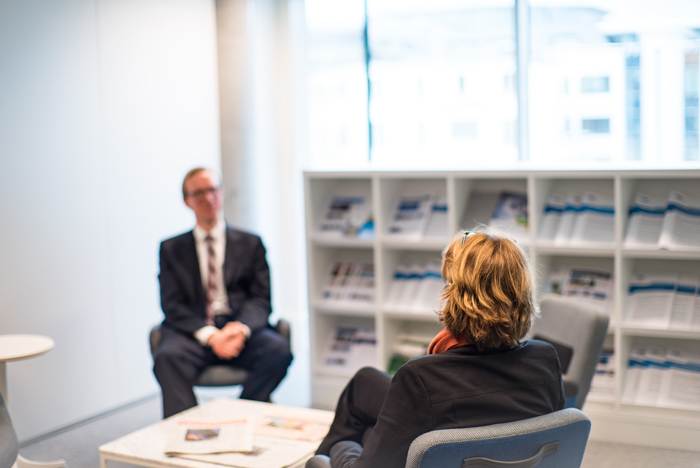
Make the completion of the Single Market a central future project: Alongside decades of peace in Europe, the Single Market is the European Union's greatest achievement. However, it is still unfinished. Restoring the Single Market after the end of the corona pandemic is not enough. The deepening of the Single Market in all areas – in particular for energy, services and digital – must be developed into a central project for the future of the EU.
Implement the Single Market package: The European Commission's Single Market Package (action plan for better implementation and enforcement of Single Market rules and the report on obstacles) must be implemented quickly and in full. The necessary national capacities, resources and know-how must be increased. The Commission should inform the Competitiveness Council of national ministers of the economy regularly on the progress of implementation.
Notify service-related national measures: Transparency and avoidance of new barriers in the Single Market should be improved through systematic notification of new measures as well as through the systematic application of the proportionality test. At the same time, it is important to improve cross-border cooperation with authorities of other EU Member States and to systematically apply the principle of mutual recognition.
Implement EU law uniformly: EU law should always be implemented 1:1 at national level and "gold-plating" should be avoided. This is the only way to ensure a uniform Single Market is ensured.
Expand and deepen the EU Better Regulation Agenda: The European Commission should implement the “One-In-One-Out” principle effectively, improve the quality of impact assessments and promote transparency.
The transfer of competencies from a national to a European level, which has been observed for decades, alongside progressive globalisation, increases the importance of interest groups in Brussels. The BDI will continue to advocate fervently a strong and competitive Union. We promise.



